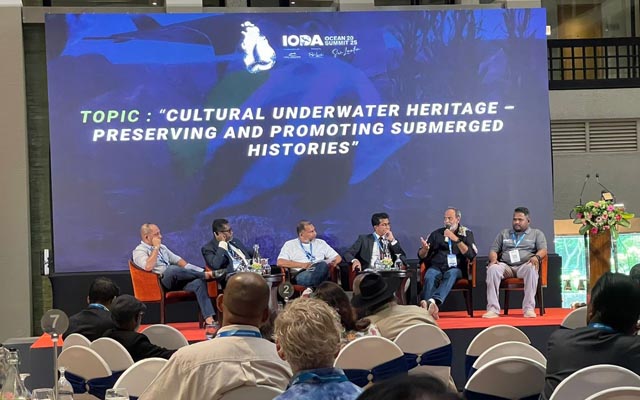Sri Lanka, with 167 shipwrecks submerged in its surrounding waters, has been identified as a location with potential for marine tourism. This perspective was shared during a recent conference in Colombo, organised by the newly-formed Indian Ocean Divers Association (IODA), where discussions centred on Sri Lanka’s prospects for developing sustainable tourism.
To date, dive tourism – particularly visits to shipwrecks and underwater sites – has not been a prominent feature in Sri Lanka’s tourism offerings, which have traditionally focused on beaches, wildlife, culture, and nature-based attractions. However, participants at the conference suggested that shipwrecks and underwater exploration could become significant elements of a future tourism strategy.

Prasad Jayasuriya, director of tourism planning at the Sri Lanka Tourism Development Authority, said there is growing interest in ocean-related tourism, especially given that Sri Lanka’s maritime area is twice the size of its landmass. He noted the need to consider how best to develop ocean tourism, with diving forming a central component, and pointed to the country’s extensive marine resources.
Participants also discussed the idea of intentionally sinking decommissioned ships to create new dive sites, in addition to promoting existing wrecks, many of which date back to the world wars.
Praladh Kakkar, president of IODA, co-founder of ReefWatch Marine Conservation, and an experienced scuba diver, described the event as a platform for those interested in marine environments, including hoteliers, fishing communities, and divers. He suggested that establishing standards in dive tourism and underwater activities “could be the start of a worldwide movement”.
Kakkar emphasised the importance of preserving ocean ecosystems, stating that shipwrecks – some of which may contain historical artefacts – must be protected from vandalism and theft. He proposed that promoting these wrecks through tourism channels could attract global interest, particularly from those interested in wartime history.
Anees Adenwala, vice president of IODA and a pioneer in India’s outbound scuba diving and underwater filming industry, said that divers are naturally inclined to explore underwater environments. He highlighted the need for divers to adopt a role in protecting marine ecosystems.
The conference concluded with a call for the development of clear regulations and responsible practices in marine tourism, to ensure that ocean resources are preserved while supporting tourism growth.











